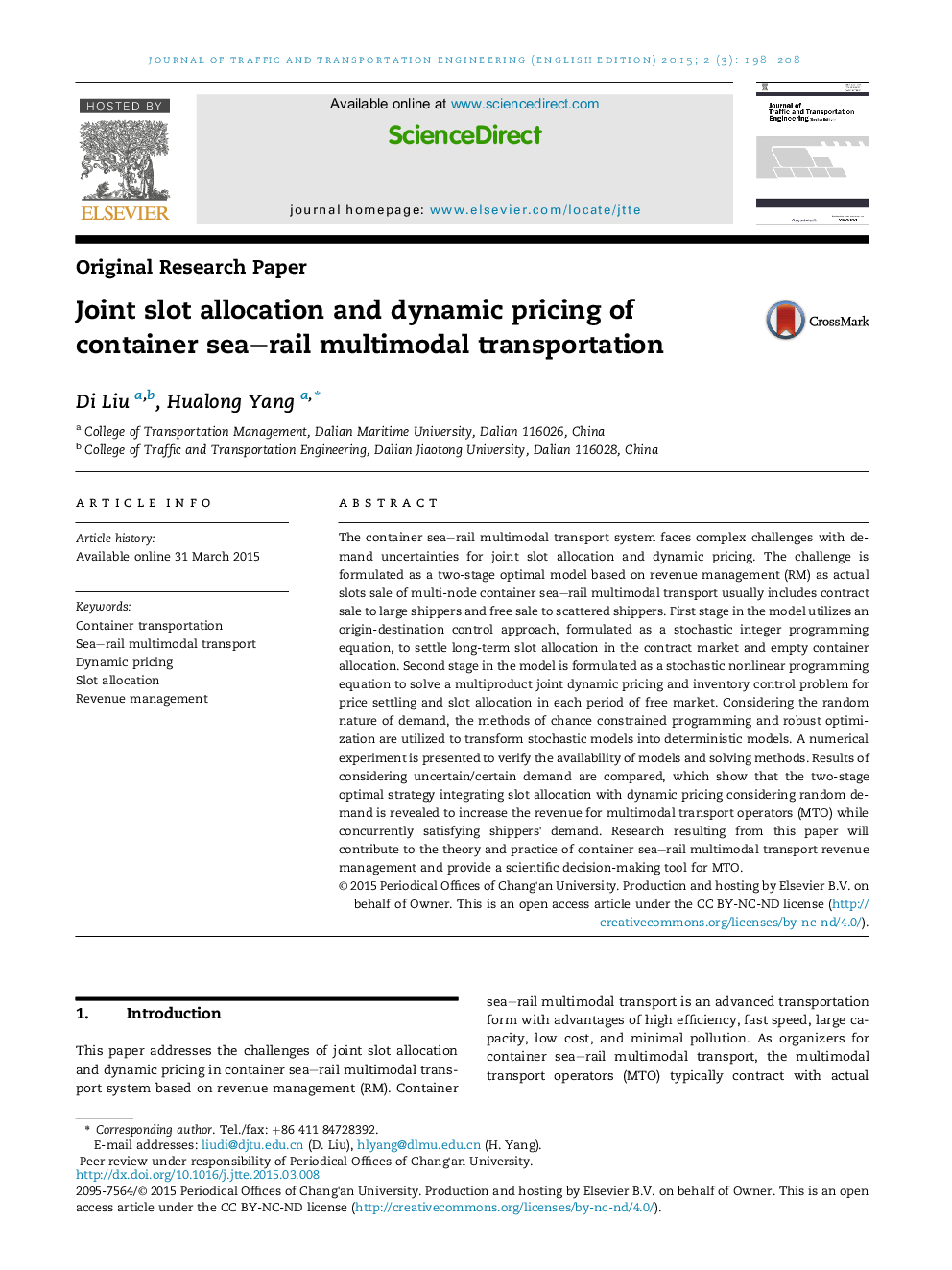| Article ID | Journal | Published Year | Pages | File Type |
|---|---|---|---|---|
| 292929 | Journal of Traffic and Transportation Engineering (English Edition) | 2015 | 11 Pages |
The container sea–rail multimodal transport system faces complex challenges with demand uncertainties for joint slot allocation and dynamic pricing. The challenge is formulated as a two-stage optimal model based on revenue management (RM) as actual slots sale of multi-node container sea–rail multimodal transport usually includes contract sale to large shippers and free sale to scattered shippers. First stage in the model utilizes an origin-destination control approach, formulated as a stochastic integer programming equation, to settle long-term slot allocation in the contract market and empty container allocation. Second stage in the model is formulated as a stochastic nonlinear programming equation to solve a multiproduct joint dynamic pricing and inventory control problem for price settling and slot allocation in each period of free market. Considering the random nature of demand, the methods of chance constrained programming and robust optimization are utilized to transform stochastic models into deterministic models. A numerical experiment is presented to verify the availability of models and solving methods. Results of considering uncertain/certain demand are compared, which show that the two-stage optimal strategy integrating slot allocation with dynamic pricing considering random demand is revealed to increase the revenue for multimodal transport operators (MTO) while concurrently satisfying shippers' demand. Research resulting from this paper will contribute to the theory and practice of container sea–rail multimodal transport revenue management and provide a scientific decision-making tool for MTO.
